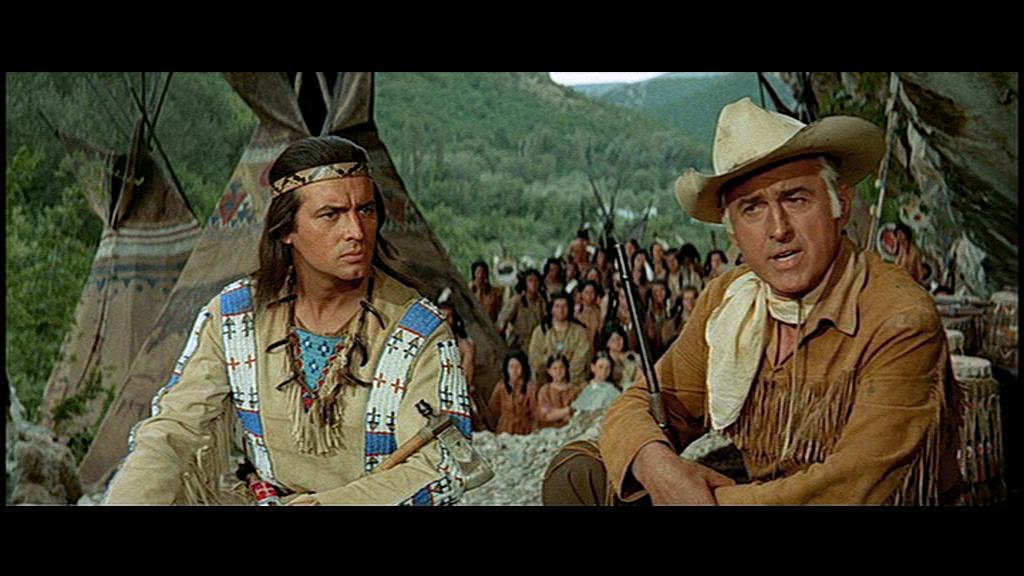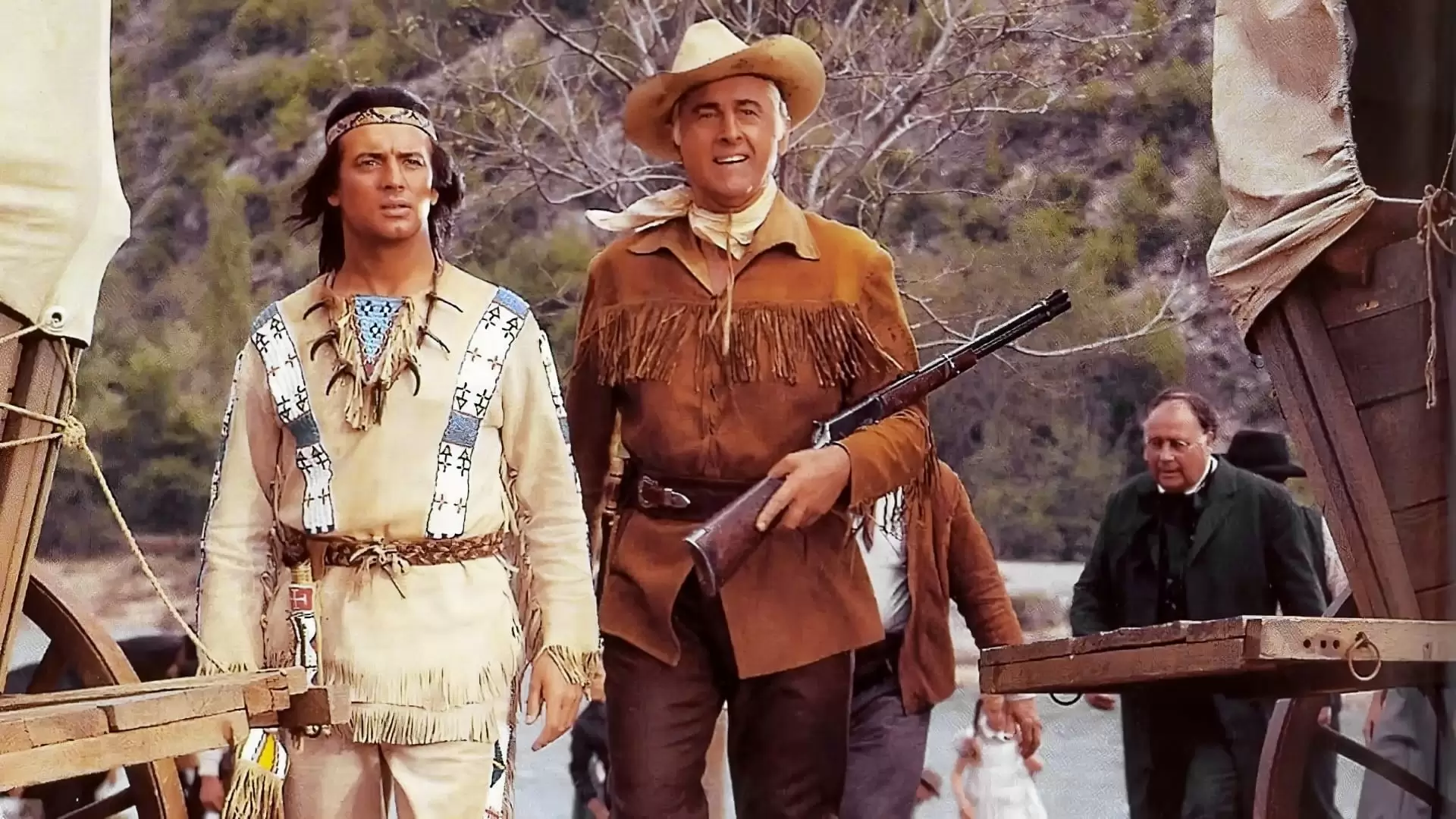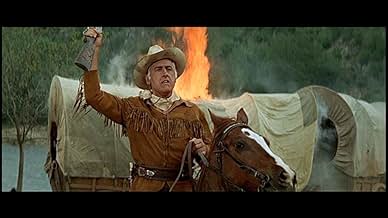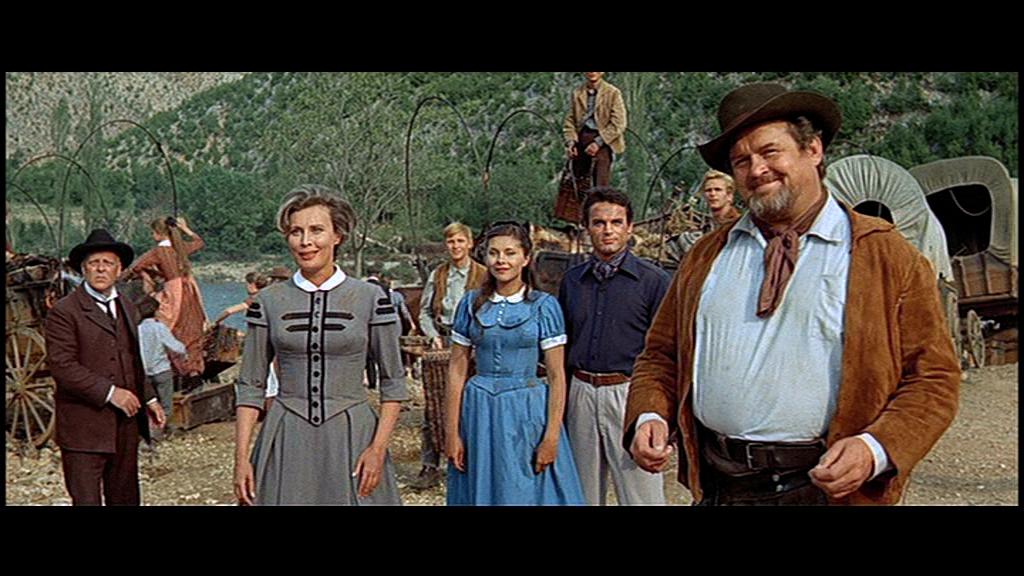The Oil Prince (1965)


“The Oil Prince” (Der Ölprinz), released on August 25, 1965, and directed by Harald Philipp, is a West German-Yugoslav Western that embodies the Euro-Western craze of the 1960s. Also known as Rampage at Apache Wells, this 1-hour-29-minute, unrated film adapts Karl May’s novel, part of his popular Winnetou series. Starring Stewart Granger as Old Surehand and Pierre Brice as Apache chief Winnetou, it blends adventure, action, and moral heroism in a tale of greed and justice. A commercial hit, it drew over 3 million viewers in Germany, 1.4 million in Spain, and 409,817 in France, reflecting the era’s appetite for German Westerns.

The story follows a wagon train of German settlers aiming to settle at Shelly Lake, a land promised by Ute and Navajo tribes for mutual benefit. Their plan is threatened by the Oil Prince (Harald Leipnitz), a ruthless conman who falsely claims the land holds oil, swindling the Western Arizona Bank. To secure his scam, he replaces the settlers’ scout with a henchman, Paddy (Davor Antolic), to mislead them, and incites conflict by murdering a Navajo chief’s son, framing Winnetou. Old Surehand, a seasoned scout, and Winnetou, his Apache ally, have one day to guide the settlers, expose the Oil Prince, and prevent a war with the tribes. With allies like settler leader Bill Campbell (Walter Barnes) and the quirky Wabble (Milan Srdoc), they unravel the plot through gunfights, horseback chases, and tense standoffs, restoring peace.

Critically, the film received mixed reviews, with a 5.8/10 on IMDb. Some praised its action and Winnetou’s noble portrayal, but others, including Granger himself, criticized its “meandering plot” and “lethargic acting.” DVD Talk called it “slightly below average,” citing pacing issues. Fans on Amazon (4.5/5 from 150 reviews) and X appreciate its nostalgic charm and the Surehand-Winnetou dynamic, a hallmark of May’s stories. As the sixth Winnetou film by Rialto Film, it leans on formulaic tropes but delivers for Euro-Western enthusiasts.
Made on a modest budget, its box-office success underscores the genre’s popularity, though it’s less celebrated than contemporaries like A Fistful of Dollars (1964). The film’s moral clash—greed versus honor—resonates, but its idealized depiction of Native Americans and simplistic villainy reflect the era’s conventions. Available on Amazon Prime and DVD with English subtitles, The Oil Prince is a time capsule of 1960s Euro-Westerns—engaging for fans of Karl May adaptations, less so for those seeking gritty realism.











